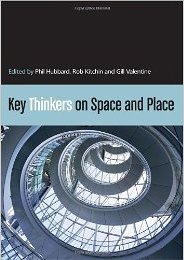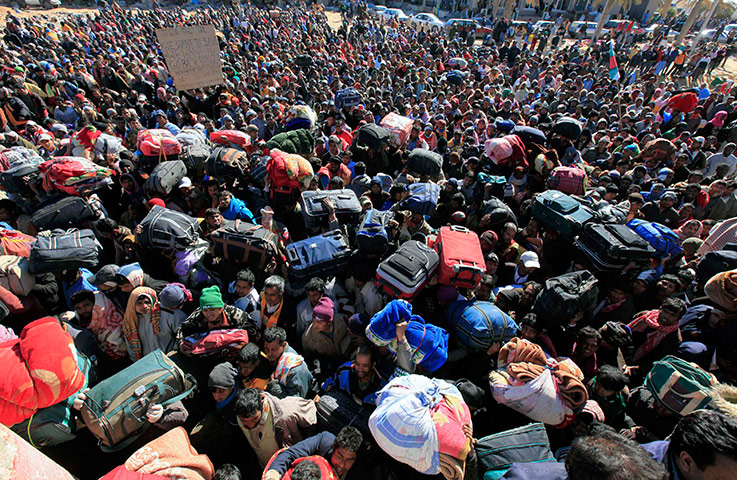In days gone by boarding houses and shops had notices saying “Irish and Blacks not welcome“. These days are happily long past, but today Apple effectively says “poor and rural users not welcome“.
This is a story about Apple and the way its delivery policies exacerbate the digital divide and make the poor poorer. To be fair, similar stories can be told about other software vendors, and it is hardly news that success in business is often at the expense of the weak and vulnerable. However, Apple’s decision to deliver Lion predominantly via App store is an iconic example of a growing problem.
I had been using Lion for a little over a week, not downloaded from App Store, but pre-installed on a brand new MacBook Air. However, whenever I plugged in my iPhone and tried to sync a message appeared saying the iTunes library was created with a newer version of iTunes and so iTunes needed to be updated. Each time I tried to initiate the update as requested, it started a long slow download dialogue, but some time later told me that the update had failed.
This at first seemed all a little odd on a brand new machine, but I think the reason is as follows:
- When I first initialised the new Air I chose to have it sync data with a Time Machine backup from my previous machine.
- The iTunes on the old machine was totally up-to-date due to regular updates.
- Apple dealers do not bother to update machines before they are delivered.
- The hotel WiFi connection did not have sufficient throughput for a successful update.
From an engineering point of view, the fragility of the iTunes library format is worrying; many will recall the way HyperCard was able to transfer stacks back and forth between versions without loss. Anyway the paucity of engineering in recent software is a different story!
It is the fact that the hotel WiFi was in sufficient for the update that concerns me here. It was fast enough to browse the web, without apparent delay, to check email etc. Part of the problem was that the hotel did offer two levels of service, one (more expensive!) aimed more at heavy multimedia use, so maybe that would have been sufficient. The essential update for the brand new machine consisted of 1.46 gigabytes of data, so perhaps not surprising the poor connection faltered.
I have been concerned for several years at the ever increasing size of regular software updates, which have increased from 100 Mbytes to now often several Gbytes. Usually these happen in the background and I have reasonable broadband at home, so they don’t cause me any problems personally, but I wonder about those with less good broadband, or those whose telephone exchanges do not support broadband at all. In the UK, this is mainly those outside major urban areas, who are out of reach of cable and fibre super-broadband and reliant on old BT copper lines. Thinking more broadly across the world, how many in less developed countries or regions will be able to regularly update software?
Of course old versions may well run better on old computers, but without updates it is not just that users cannot benefit from new features, but more critically they are missing essential security updates leaving the vulnerable to attack.
And this is not just a problem for those directly affected, but for us all, as it creates a fertile ground for bot armies to launch denial of service attacks and other forms of cybercrime or cyberterrorism. Each compromised machine is a future cyberwarrior or cybergangster.
However, the decision of Apple to launch Lion predominantly via App Store has significantly upped the stakes. Those with slower broadband connections may be able to manage updates, but the full operating system is an order of magnitude larger. Of course those with slower connections tend to be the poorer, more vulnerable, more marginalised; those without jobs, in rural areas, the elderly. It is as if Apple has put up a big notice:
“To the poor and weak
we don’t want you“
To be fair, Lion is (one feels grudgingly) also made available on USB drives, but at more than twice the price of the direct download. So this is not entirely shutting the door on the poor, but only letting them in if they pay extra. A tax on poverty.
Of course, this is not a deliberate act of aggression against the weak, just the normal course of business. The cheapest and easiest way to deliver software, and one that incidentally ensures that all revenue goes to Apple, is through direct online sales. The USB option adds complexity and cost to the distribution systems and Apple seem to be pricing to discourage use. This, like so many other ways in which the poor pay more, is just an ‘accident’ of the market economy.
But for a company that prides itself in design, surely things could be done more creatively?
One way would be to split software into two parts. One small part would be the ‘key’, essential to run it, but very small, The second part would constitute the bulk of the software, but be unusable without the ‘key’. The ‘key’ would then be sold solely on the App store, but would be small enough for anyone to download. The rest would be also made available online, but for free download and with a licence that allows third party distribution (and of course be suitably signed/encrypted to prevent tampering). Institutions or cybercafes could download it to local networks, entrepreneurs could sell copies on DVD or USB, but competition would mean this would be likely to end up far cheaper than Apple’s USB premium, close to the cost of the medium, with a small margin.
Of course the same method could be used for any software, not just Lion, and indeed even for software updates.
I’m sure Apple could think of alternative, maybe better, solutions. The problem is just that Apple’s designers, despite inordinate consideration for the appearance and appeal of their products, have simply not thought beyond the kind of users they meet in the malls of Cupertino.

 I was just reading the chapter on
I was just reading the chapter on 


